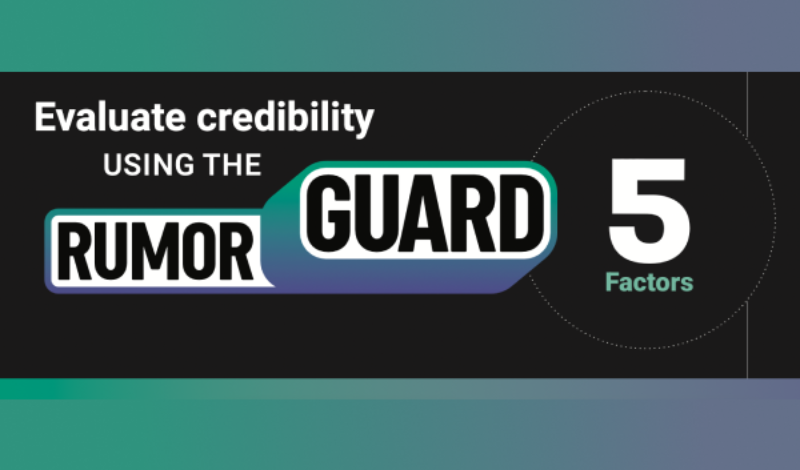
Three types of election rumors to avoid
Elections are the lifeblood of democracy, but political campaigns are often rancorous, controversial and polarizing events. As if the
The internet is inconceivably large. In fact, it’s essentially endless! Sometimes it’s easy to find the information you need, but often trying to find something specific can be overwhelming and feel like looking for a needle in a haystack. So we partnered with disinformation research expert Cindy Otis — also the author of True or False: A CIA Analyst’s Guide to Spotting Fake News — to bring you eight tips that can help you improve your search results and zero in on what you’re looking for more quickly.
These advanced searching skills can also help you work your way back to the original source of specific claims, quotes, photos and videos — a critical step in fact-checking things you’re unsure about online.
This infographic features hyperlinked example searches that demonstrate exactly how your results will look when you apply these eight tips:
Remember: Effective searching is as much about eliminating the results you don’t need as it is finding the ones you do. Applying these eight tips can help you clear away the clutter of results you don’t need — which makes homing in on the results you do need much easier.
Implementing these small tweaks to your online searches can make a big difference. Keep this infographic handy — on your phone or at your desk — and you’ll be Googling like a pro in no time.
Elections are the lifeblood of democracy, but political campaigns are often rancorous, controversial and polarizing events. As if the


Don’t get caught off guard. Recognize misinformation and stop it in its tracks by using RumorGuard’s 5 Factors for


Student voices are catalysts for positive change in schools and communities. You can empower them to be well-informed and



